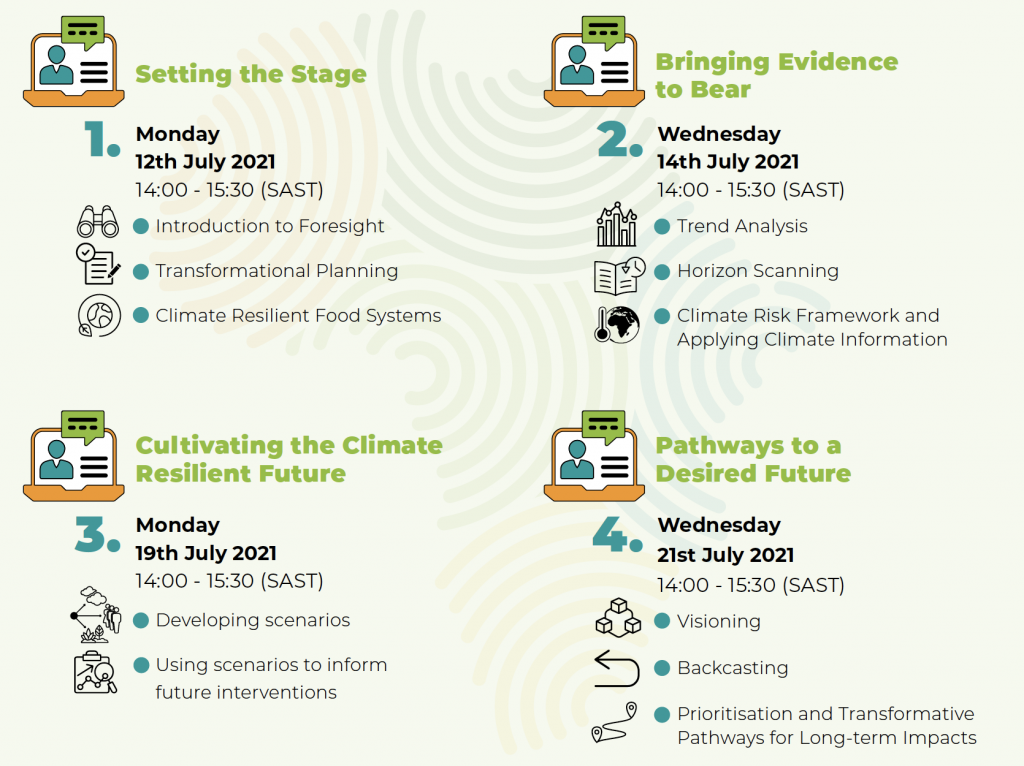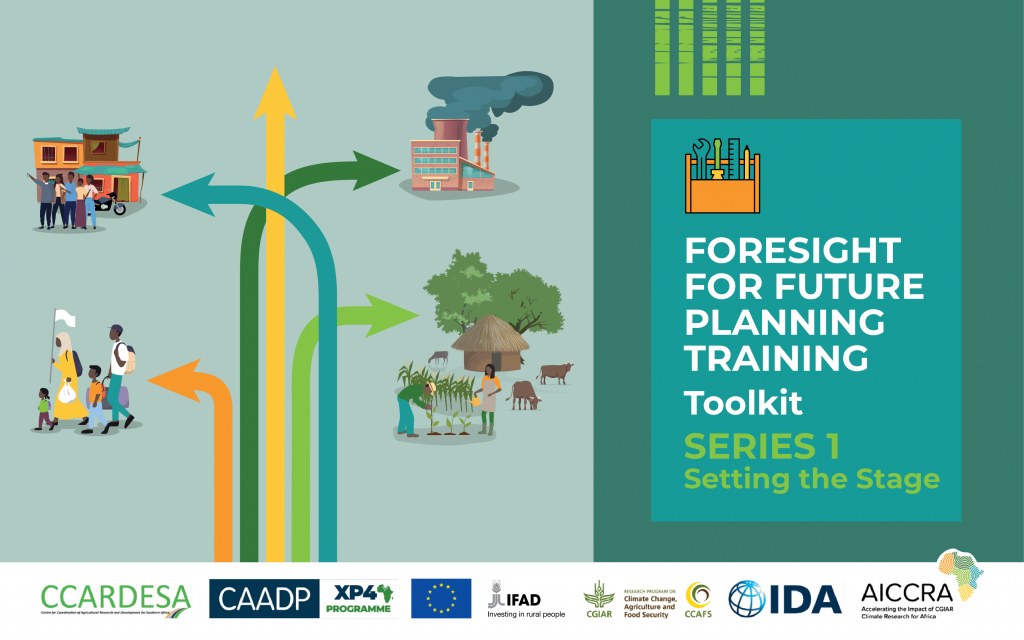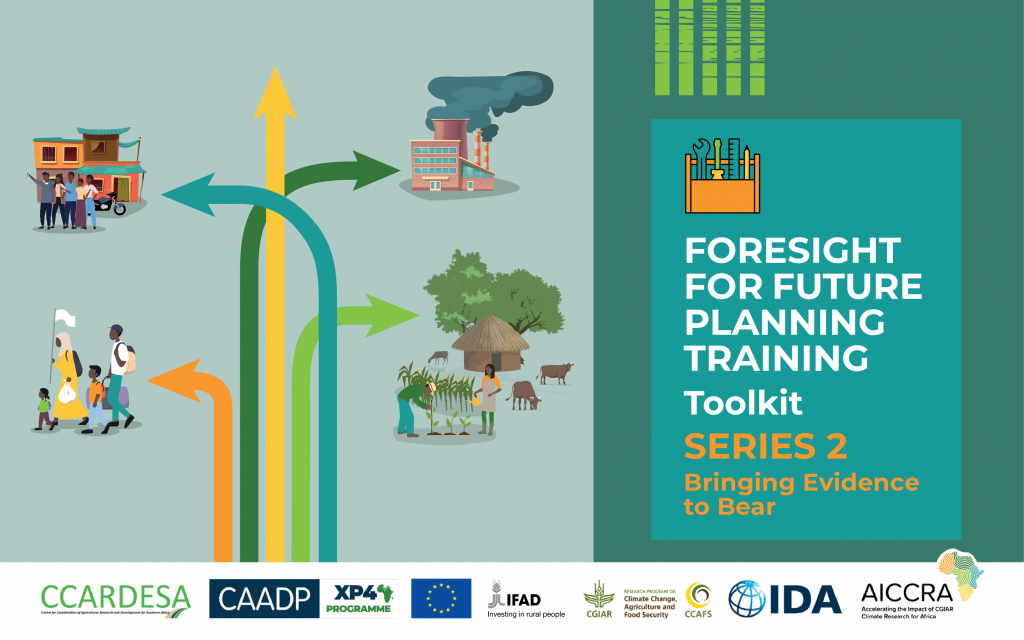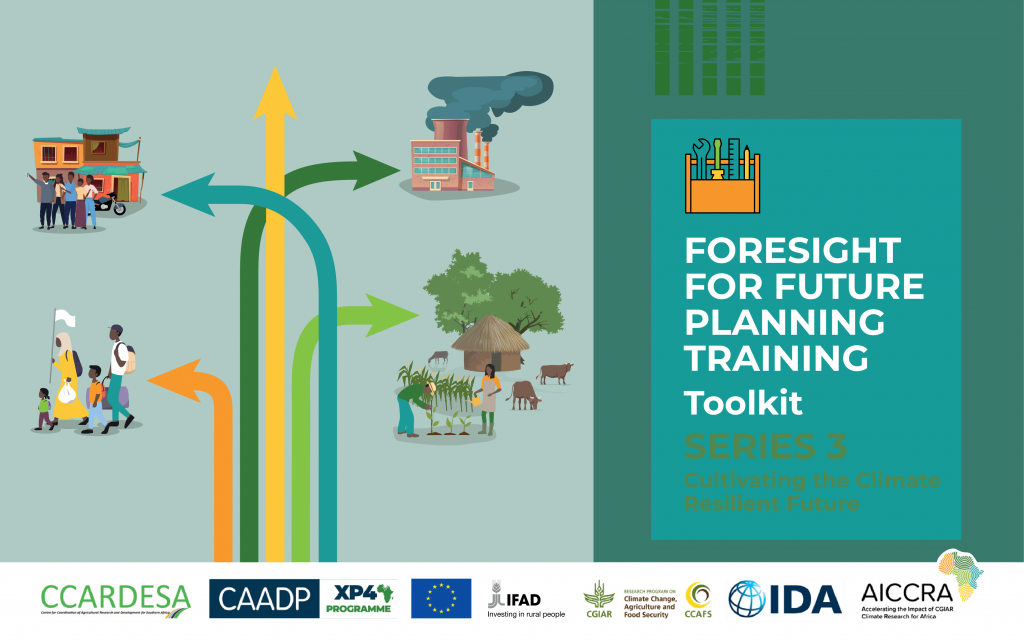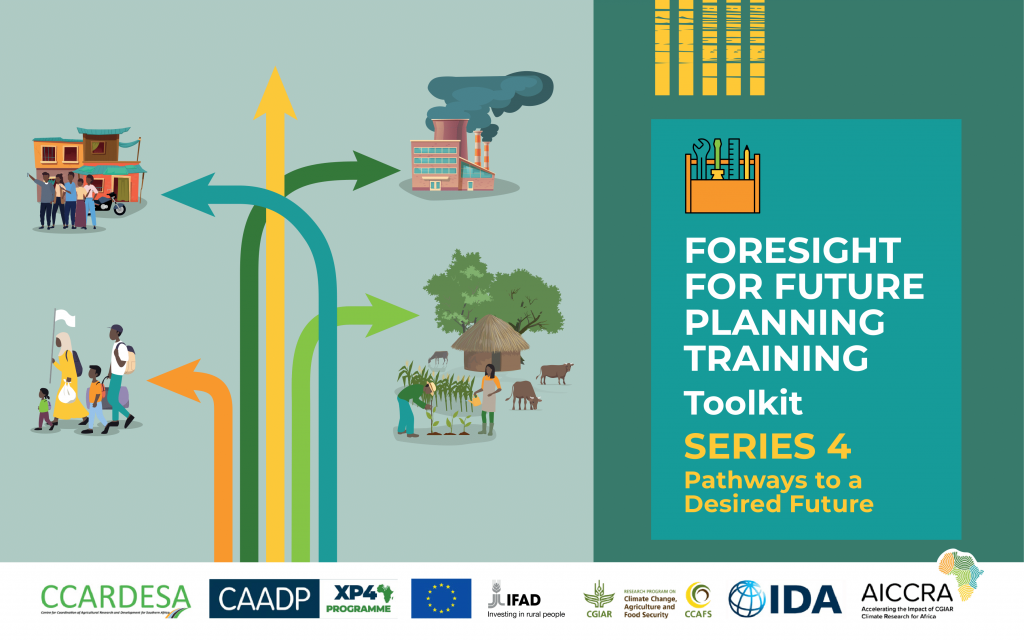Foresight for future planning training series
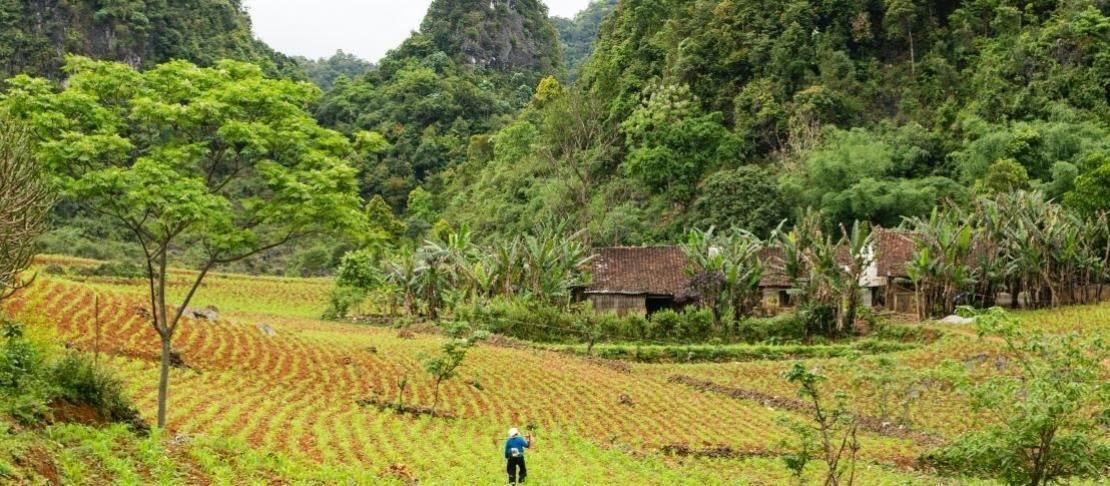
Below you can find details on each part of the training series, including the training recordings as well as the relevant sections from the toolkit. At the end, you can download the full toolkit.
Training 1 - Setting the stage
The first training session:
- Gave an overview of climate impacts in the SADC region and why future planning is so critical;
- Provided an introduction to foresight and 'future' thinking methods;
- Differentiated between planning for incremental and transformational change;
- Elaborated upon how foresight can lead to more transformational planning.
Training 1 recording:
Toolkit SERIES 1 - Setting the Stage:
Training 2 - Bringing evidence to bear
The second training session:
- Discussed key things to set up a foresight exercise;
- Introduced 3 time horizons — the session looked at scanning historical and current trends;
- Provided insights into thinking in systems and causal analysis in the planning process.
Training 2 recording:
Toolkit SERIES 2 - Bringing Evidence to Bear:
Training 3 - Cultivating the climate resilient future
The third training session:
- Examined causal analysis and working in systems within a foresight process;
- Introduced the development of scenarios to explore possible futures;
- Identified drivers of impact and uncertainty;
- Demonstrated concretely how to develop different and plausible scenario narratives.
Training 3 recording:
Toolkit SERIES 3 - Cultivating the Climate Resilient Future:
Training 4 - Pathways to a desired future
The last training session:
- Introduced the articulation of a compelling vision that integrates desired future scenarios to support long-term planning;
- Demonstrated backcasting as a tool to work backwards from the desired future to design transformational actions;
- Showed steps to prioritize and develop a transformative strategy;
- Discussed opportunities for future foresight support.
Training 4 recording:
Toolkit SERIES 4 - Pathways to a Desired Future:
The Foresight for Future Planning Training Series Toolkit summarizes the four training sessions, including introducing the topics covered during the trainings, as well as learning exercises and Q&A sessions.
Click below to access the full toolkit:
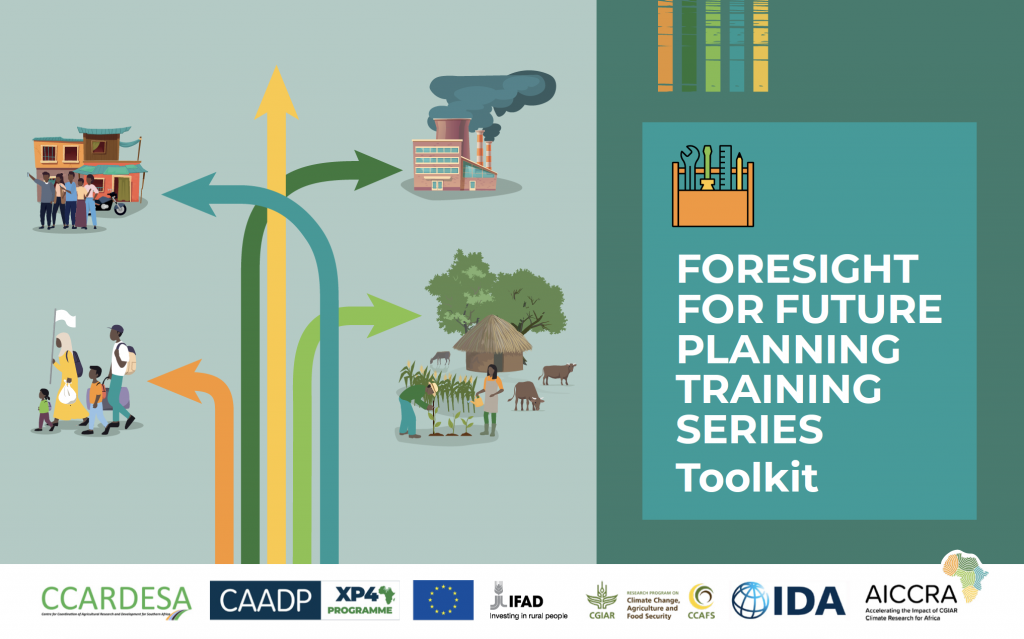
Background
The Centre for Coordination of Agricultural Research and Development for Southern Africa (CCARDESA) in collaboration with Accelerating Impacts of CGIAR Climate Research for Africa (AICCRA) project, funded by the International Development Association (IDA) of the World Bank, offered a tailored foresight training to assist in building capacity and skills to address agricultural and climate change planning and implementation.
The training series was also supported by the the Comprehensive Africa Agriculture Development Programme ex Pillar 4 (CAADP-XP4) programme funded by the European Union (EU) and administered by the International Fund for Agricultural Development (IFAD).
This training series was designed for policymakers, technical officers, advisory services, researchers and academicians from regional and national government linked to agriculture, food systems and climate change across the Southern African Development Community (SADC) Region.
KEY TRAINING OUTCOMES
In these highly uncertain and rapidly changing times, the SADC region remains fundamentally dependent on a robust and resilient agricultural system and natural resource base. Climate change still poses the greatest threat to the productivity of agricultural systems and therefore technical and research capacity is needed to take into account uncertainties and to adapt plans, policies and programmes that support climate-smart and resilient agriculture.
Considering alternative futures, this training series equipped users to practically apply a range of foresight tools and methods for innovative research in development prioritisation, specifically assisting in strategic planning and policy formulation for climate relevant transformation in agriculture and food systems.
APPROACH
This virtual training series aimed to ensure attendees can apply practical and concrete foresight tools and methods to plan for climate resilience in agriculture and natural resource management in the SADC region and beyond. Participants engaged in interactive exercises during the four webinars and received an accompanying Foresight Toolkit to support their further efforts.
SCHEDULE
The four-part foresight training Series took place over a two-week period, hosted on Mondays and Wednesdays between July 12th and July 21st.
